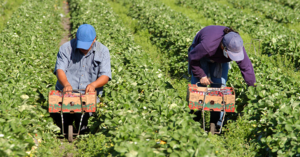We need to talk about the Pacific.
The brouhaha over Donald Trump’s latest attack on a journalist for doing journalism (this time the excellent John Lyons) rather overshadowed it, but Anthony Albanese’s trip to Papua New Guinea made one thing undeniably clear.
The Pacific has lost patience with Australia.
This is not new, nor particularly earth-shattering as analysis. But it does pose larger questions for Australia moving forward, as the old ways of doing business with our regional neighbours no longer cut it.
One reason Australia has always been so clumsy in its dealings with the Pacific is that it only ever views the Pacific in terms of defence. What can the Pacific do for Australia? Who doesn’t Australia want on its doorstep? What does Australia have to do to ensure the defence of the region?
Defence, of course, has its place. But the Pacific is a diaspora of cultures and people who do not exist to serve as pawns in Australia’s defence strategies with the United States. And yet, in our dealings with the Pacific, that is always the frame.
Papua New Guinea not signing an agreement Albanese visited the nation to sign, on the back of Vanuatu also withholding its agreement on a separate deal makes very, very clear the Pacific has run out of patience with us.
And that is a problem for Australia in more ways than just defence.
Australia’s main diplomatic role in the Pacific has been divide and conquer. Successive Australian governments have been savvy enough to know a united Pacific region would spell bad news for Australia’s motives and interests in the region, and so decades have been spent establishing Australia as chief mediator – but never with all nations at the same time. That has resulted in overreach in how Australia views its power and influence in the region, and that overreach has created an all too predictable response – pushback.
The problem with colonial powers is that they never truly take the time to take stock of the world as it is, and instead hark back to the world that they assume still exists – one where their view was absolute.
You can see that in America, as the Trump administration, and all those who hold it up, make the mistake of thinking that being America is enough to maintain global relevancy – that no other nations would dare look elsewhere to build relations. But, of course, they are.
The response to mask off bullying, or its more timid cousin, overreach, has always been resistance. The world is remapping and relationships are being built without America.
But Australia, as we know, still hasn’t adjusted. So, it continues on its path, same as it ever did, thinking that a hospital here, a road there, a line of credit sprinkled on top, will be enough to bend sovereign nations to our own strategic will, one that benefits Australia without much thought as to what it means for Pacific nations.
As Albanese is learning, you can not do that anymore. They will just say no. And if Australia continues to push, it risks creating instability within the very nations it has invested in keeping under control.
If Australia continues on its path of not listening to what it is being told, it risks louder voices drowning us out completely. Australia risks creating its own populist Pacific nightmare – where Trump-style politics become more and more attractive to nations sick of being told what to do by a bigger “ally” that only acts in its own interests. We know what resentment can do to a populace. Yet, Australia, still married to a world order that has seismically shifted, seems surprised the old ways are no longer working.
Albanese will now attempt to cement the shifting sands of that old world order with trips to Britain and the US. His mind is on AUKUS and shoring up an agreement that is already dead in the water.
He would be much better placed to use his time to examine ways out for Australia, ways that broaden our own interests and, more widely, that of the region we sit in. We cannot pretend we have not been warned of the consequences of stubbornly plodding down this murky path.
It does not matter if Albanese meets Trump or not. Nothing said in that room would be binding for any longer than it takes the President to finish a Big Mac.
But it does matter what we do in the Pacific – more than ever. It matters how we map out our own future.
If only there was as much focus on that, as there was a meeting with a Diet Coke-fuelled despot who is as trustworthy as a rattlesnake in a chicken coop.
Between the Lines Newsletter
The biggest stories and the best analysis from the team at the Australia Institute, delivered to your inbox every fortnight.
You might also like
Labor giving billion-dollar cost of COP to Pacific would show genuine climate leadership
The Australia Institute is calling on the Albanese Government to redirect the billion dollars saved by not hosting COP31 to Pacific nations.
Does the government understand its own hate laws?
The government passed new gun control and hate speech legislation in a special parliamentary sitting, but what impact will they have on Australian democracy?
A fair go for temporary workers from the Pacific
On a whistlestop tour of Fiji, Tonga, and Vanuatu in May, Foreign Minister Penny Wong wanted to focus on climate change, security, and aid funding.




